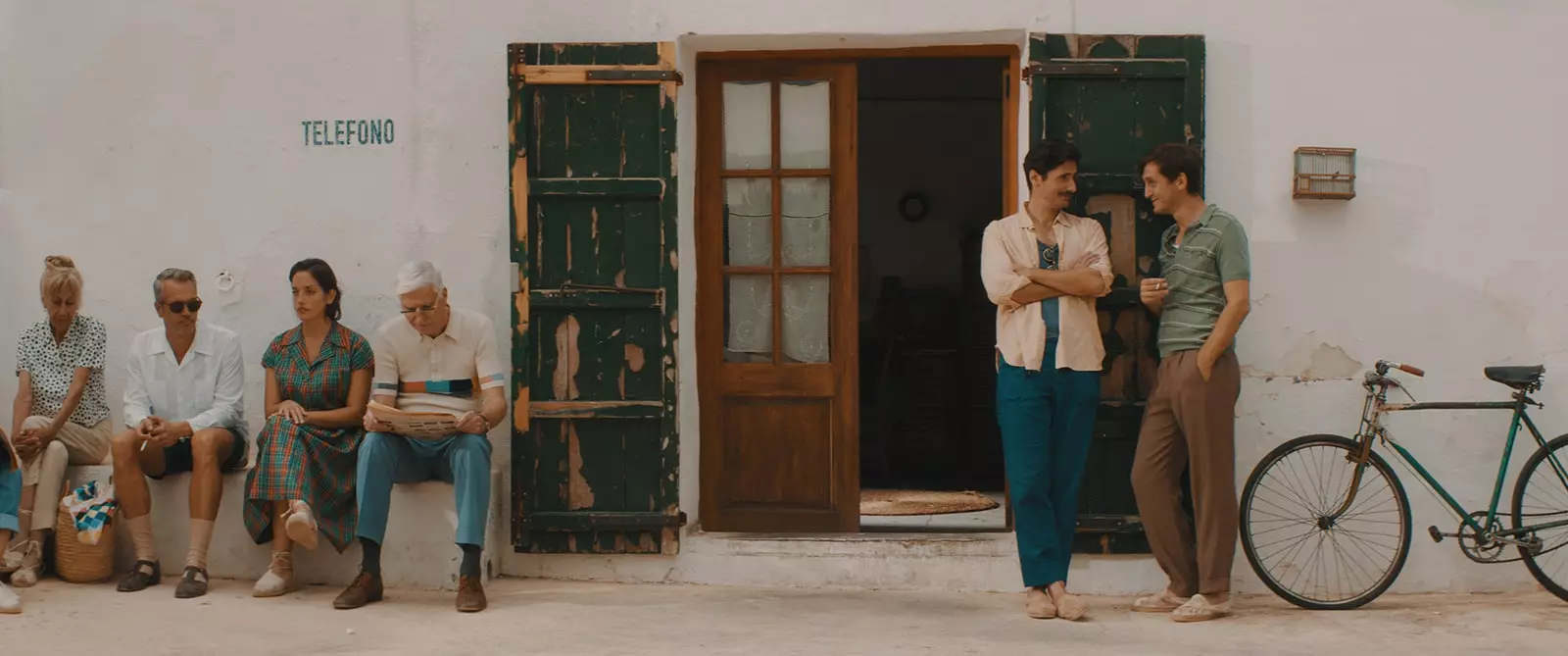
Ibiza, the 50s, another island.
Between 1957 and 1960, rafael azcona had a good time for Ibiza. On the island, the Ibizans still remember him. The anecdotes came to them from everywhere, from the Ca n'Alfredo restaurant, in Ibiza capital, where they still have photos of the writer and screenwriter, and of everyone who knew him at some point. “When you go to shoot in Ibiza, echoes of the legends of Azcona reach you: here he was, here two girls fought over him, here he had a lover…”, he says Víctor García León, director of Vete de mí, by Selfie, and that has launched into the adaptation (co-written with Bernardo Sánchez and Marta Libertad Castillo) of The Europeans, the novel that Azcona wrote after those long vacations in Ibiza, "in San Antonio in particular".
For many, The Europeans is one of the best texts of the brilliant Azcona. A work that he edited in 1960 in a strange way (with a French stamp) to avoid censorship and that republished in 2006 without censorship or self-censorship, only with the memories of him and his acute and always eternal reflections, badly that he regretted it, of the Spanish and Spain.
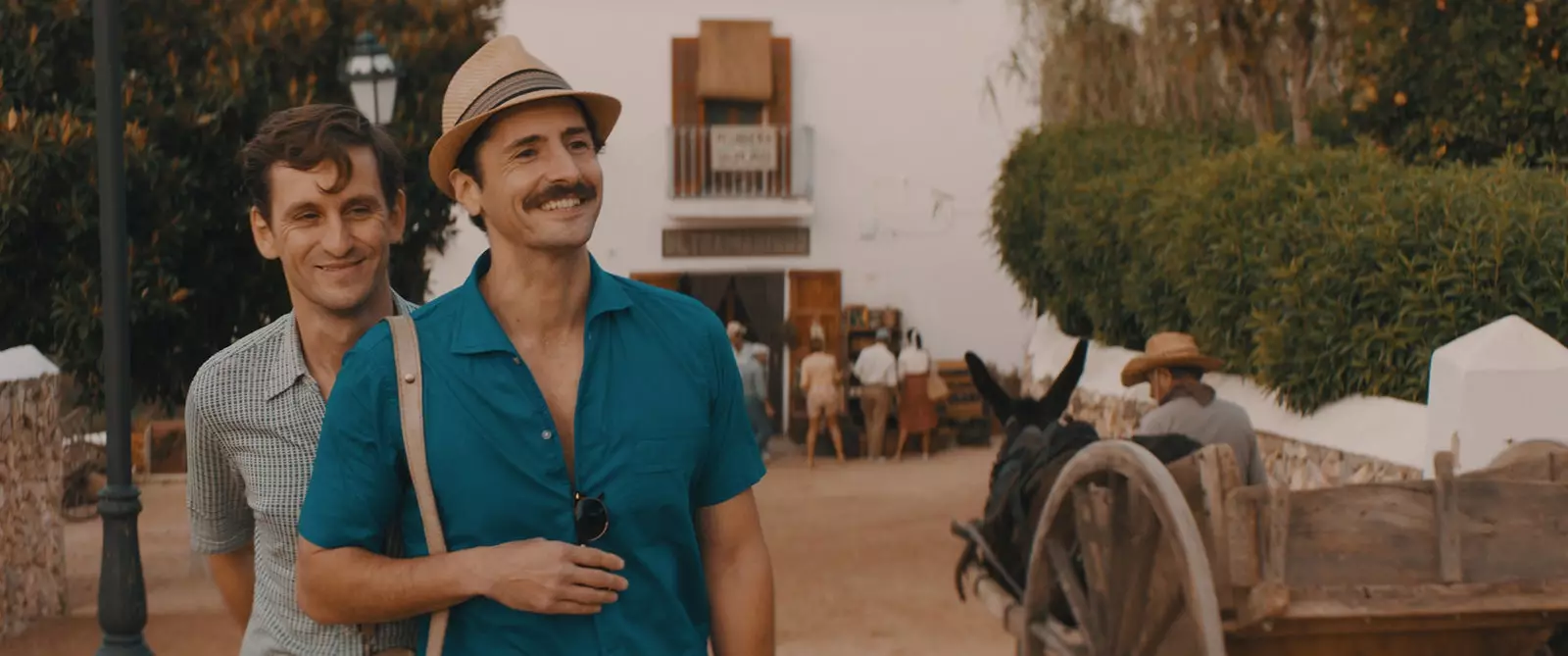
The arrival to the lost paradise.
“We have been as unfaithful to the novel as Rafael would have been, I think. We have betrayed him as he would have betrayed himself, because the relationship of Rafael with posterity I think he was very flexible ”, says García León, who through his father, the filmmaker José Luis García Sánchez, met Azcona and came to work with him on a script in his final years. "I don't think he felt like it or that we were talking about him right now." And yet he has left his mark, in Ibiza and in all. His films and writings are very current, very real. You only have to see the two protagonists of The Europeans: Antonio (Juan Diego Botto in the film) and Miguel ** (Raul Arevalo). **
“I think that in this country, that we are very given to fantasy, We have taken the name of Azcona or Berlanga to define the very bizarre things. We say Azconian or Berlanguian wanting to believe that the characters that appear in his films are the bizarre version of ourselves and that is a lie: Azcona and Berlanga are faithful to what they see, they are honest”, says the filmmaker. “The fantasists are those who insist that we are elegant, educated and tall, but this whole country is as it is and not as we would like it to be. and i think that Azcona survives past the years by pure honesty and since what he portrays is true, he continues to represent us because we have not changed much, we are still anchored in the same fantasies”.
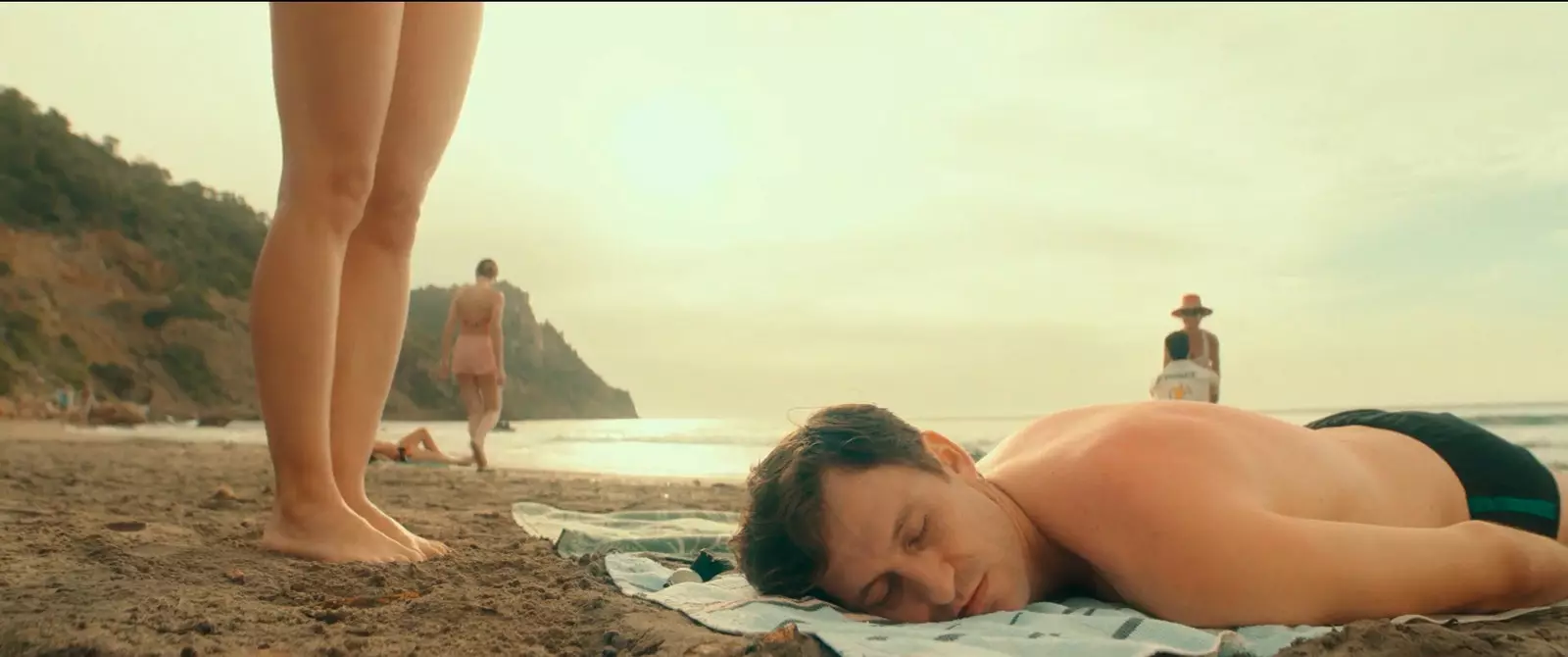
Raúl Arévalo getting to know Ibiza.
We don't change even if the most beautiful French girl comes to shake off the dust of Franco's Spain, as happens to Miguel, a draftsman, a worker in the company of his friend Antonio's father, who falls in love with Odette in Ibiza, a Parisian with a lot of style. He is a man very anchored to his lower-middle class reality, without great aspirations. A man to whom Antonio yells as soon as he disembarks in Ibiza: "Don't be so Spanish to me".
This defeatist, deterministic idea that is dominating the movie with the aspect of a romantic comedy, but with a hint of identity drama. This is how we are, this is how we will be. We do not change, but what surrounds us does change, it does advance, not always for the better. There's Ibiza. That Ibiza of the 50s to which Azcona perhaps went looking for a place without people, empty, believes Víctor García León. He was ahead of many, everyone, the hippies, the hotels, the clubbers and he knew an Ibiza that remained in his memory and has left in ours like the lost paradise.
"I think that from those years he spent on the island comes the idea of paradise lost in his work, that kind of yearning for something that no longer exists, that is in Belle Epoque, in The Language of Butterflies, in The Executioner... That yearning for Peter Pan's island." the director of Vota Juan suspects. That lost paradise that may have a name for some, be a place and a time, that Ibiza of the 50s, and for others it is something more difficult to define.
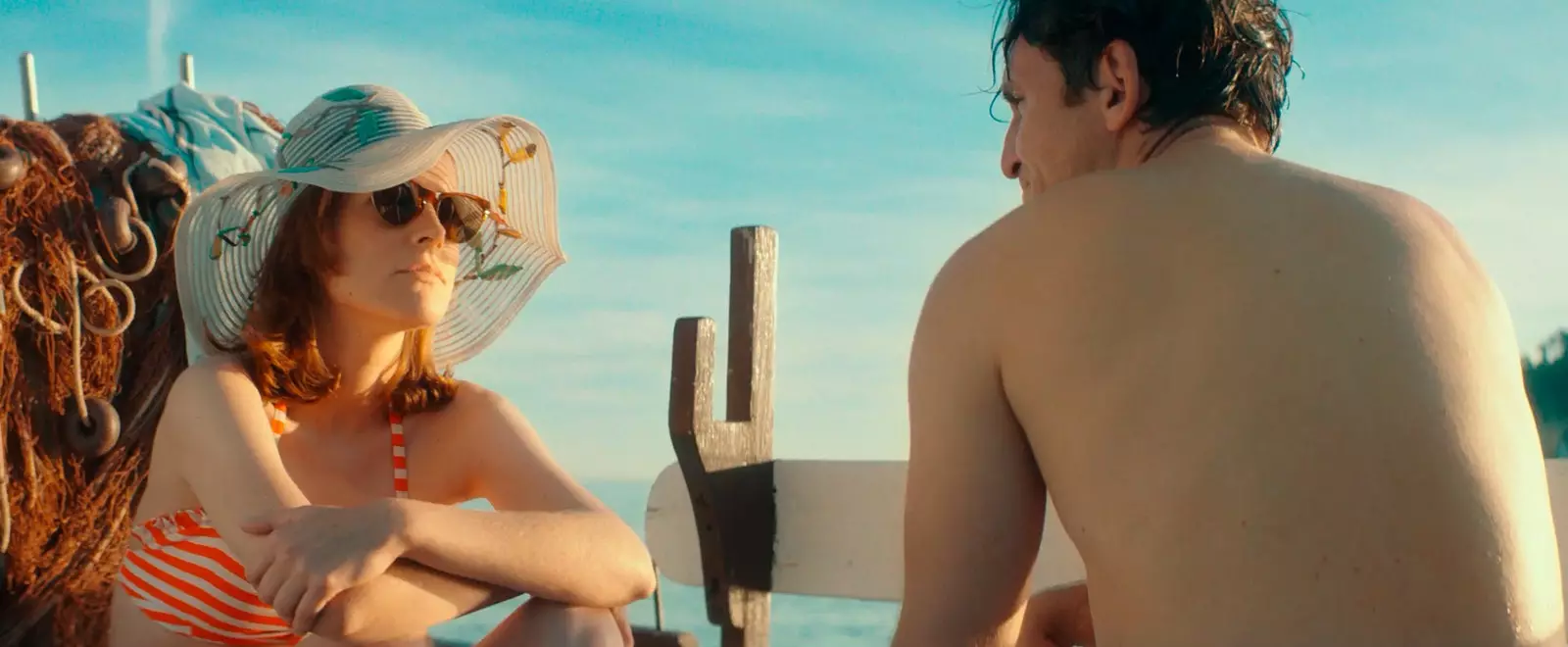
Odette and Miguel, a summer romance.
In Los Europeos, where García León and his co-writers prioritized "making the best film possible", that is his tribute to Azcona, fearlessly generate a melancholy for that island that we have not known nor will we know that crosses us a lot to all of us who have passed through Ibiza at the busiest time of year.
"What we wanted, I don't know if we have moved, is the nostalgia of something that no longer exists, that paradise that no matter how much you row backwards you will not be able to repeat it”, Explain. “Those ghosts that sentimental life leaves us, how memory magnifies the memory of things and in some way is harmful to you, it fucks you up, it hurts you. we wanted to do an island so beautiful, so charming and so special that, in some way, made the viewer feel that it was over”.
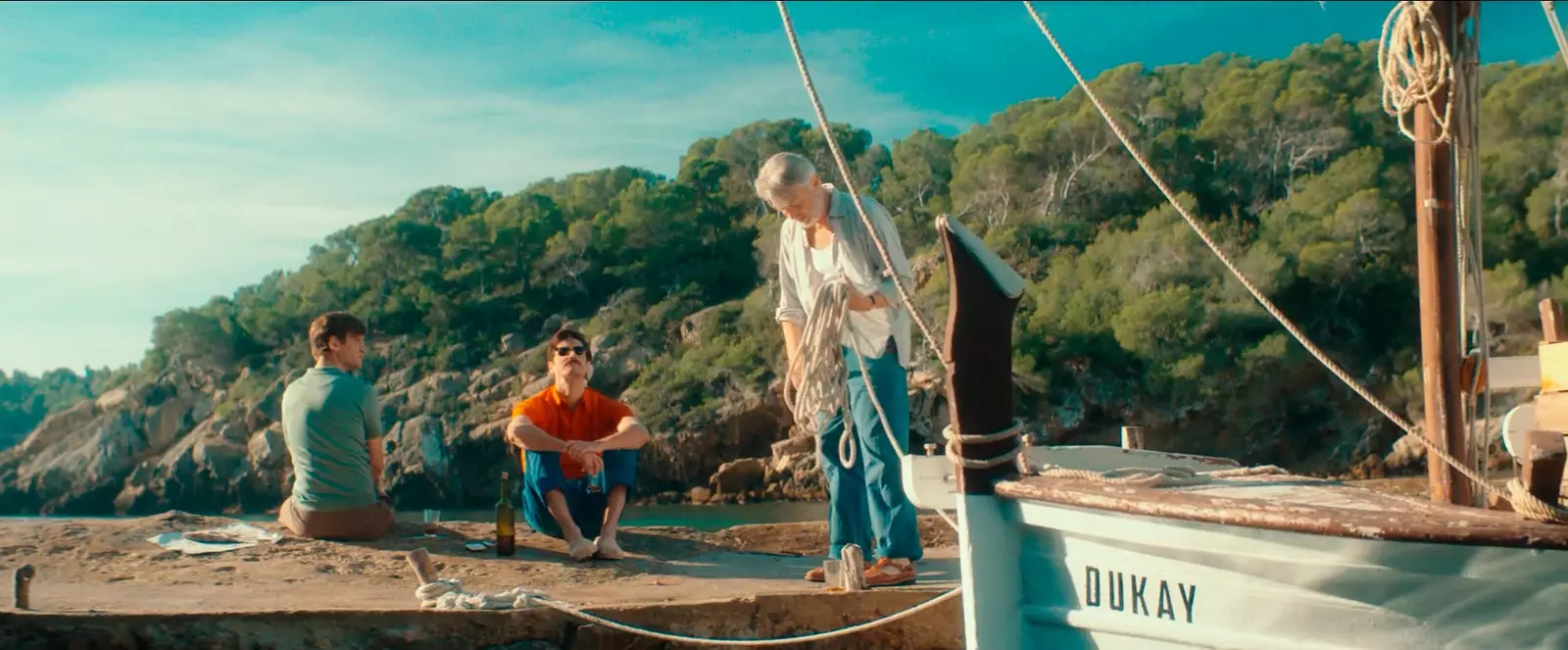
In Ibiza, many people still remember Azcona.
They succeed, they transfer that melancholy for something that we don't even live. And yet, being a little more earthly, found in today's Ibiza those corners that take us back to the 50s. "There are places, there is always a corner where you can escape," says the director. “It is true that above all it is a problem of quantity, we are many and if we are many trying to enjoy the same place it becomes a problem of where to put the towel, there is no space”.
But they shot in December 2018, in Cala Mastella (The Whiskers), a mythical place where you only go to eat fish and coffee found its Bodega Sansol, where Spaniards and Europeans meet and live their “circus nights, clown mornings” . The rural house in which they stay was near Saint Eulalia, and the town with a single telephone, with its little bars, is “Partly Santa Eulalia and Sant Agustí”.
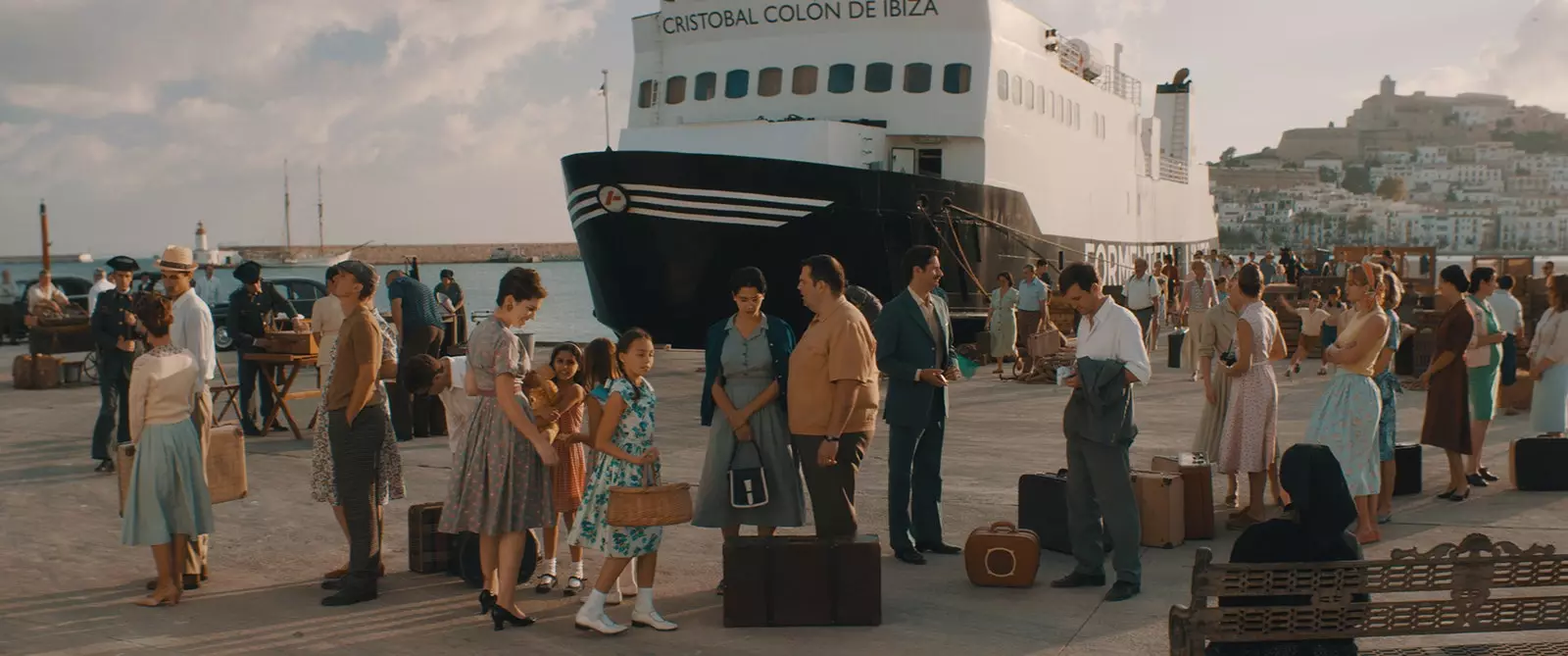
The hippies didn't even smell this place yet.
If you look for it, you can find something of that lost paradise. Miguel had something to do with it, perhaps. "I have the feeling that Miguel's character returns to Ibiza and starts building hotels", says Victor Garcia Leon. “Because there are a lot of buildings and hotels that give you the feeling of a lost paradise. It is not only lost in space but in time.
'The Europeans' can be seen on Orange Series (Orange TV).
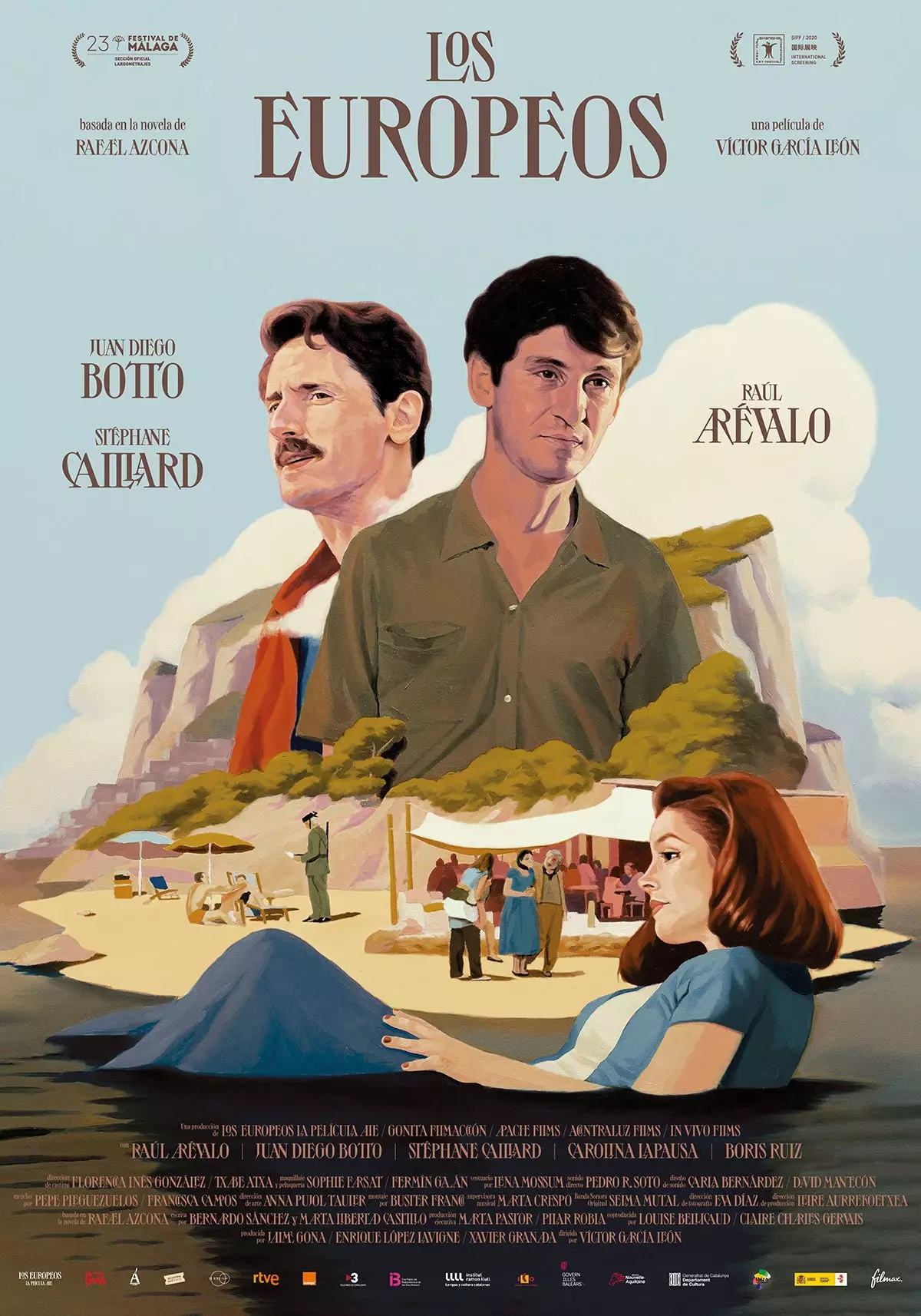
Poster for 'The Europeans' by David de las Heras.
